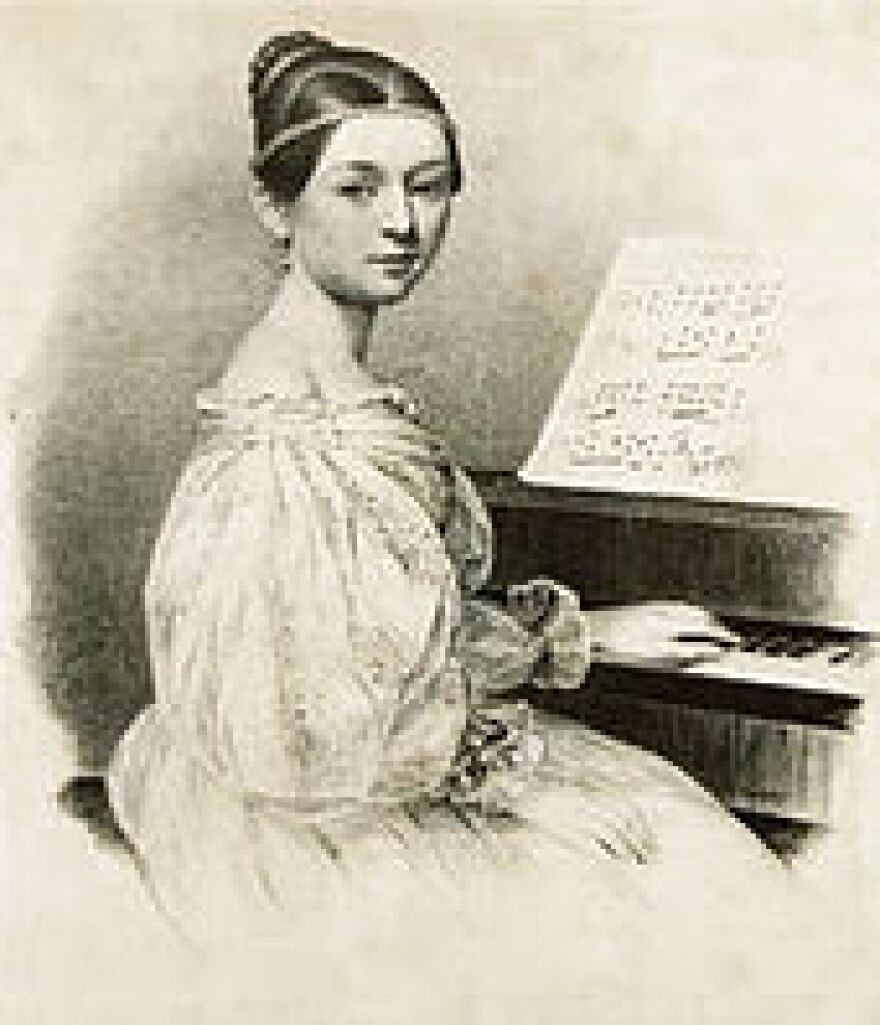Originally aired May 16, 2016
19th century Germany was not a hospitable environment for female composers. Nevertheless, Clara Weick-Schumann left an indelible mark with her compositions, her soulful musicianship, her inspired instruction and her influence on many major composers of her generation.
Loading...
Clara’s father, Friedrich Wieck, had big plans for her even before she was born. He was a sought-after piano instructor in Liepzig and his ambition was to train his first-born child to be a world-class musician. Clara started lessons with her father at the age of five.
By nine, she was performing in public and the very next year she was on tour in Europe. She was greatly admired by Chopin, Paganini and Liszt who declared that she possessed, “complete technical mastery, depth and sincerity of feeling." By the age of 19, she was appointed to an Austrian court and inducted into the Society of Friends of the Music in Vienna.

It’s impossible to talk about Clara without mentioning the love of her life, Robert Schumann. Schumann had been living with the Weick family since Clara was 10. In 1837, Robert asked Friedrich for Clara’s hand in marriage. Not only did Friedrich refuse but he went out of his way to keep them apart including printing lies and trying to sabotage both of them personally and professionally. The matter was finally taken to court, which ruled in their favor and the two were wed in 1840.
Married life, children and Robert’s declining mental condition made it difficult for Clara’s music, yet she continued to perform and even go on tour. In 1854, Robert was committed after an unsuccessful suicide attempt. He died in asylum two years later, leaving Clara to care for their seven children. But she was not alone.
The young composer, Johannes Brahms, remained at her side as a friend and companion for the rest of her life. However, Robert remained the center of Clara’s heart. She dedicated herself to the publication of Robert’s complete catalog and his writings.
As a pianist she was known for pushing the boundaries of the repertoire, being one of the first to perform the works of her husband, Brahms and Chopin. Like her father, she was also a sought after instructor. Sadly though, she abandoned composition quite early in her career.
She stated later, “I once thought that I possessed creative talent, but I have given up this idea; a woman must not desire to compose – not one has been able to do it, and why should I expect to? It would be arrogance, although, indeed, my father led me into it in earlier days.”
Find out more and follow the Timeline at VPR.org/timeline.




